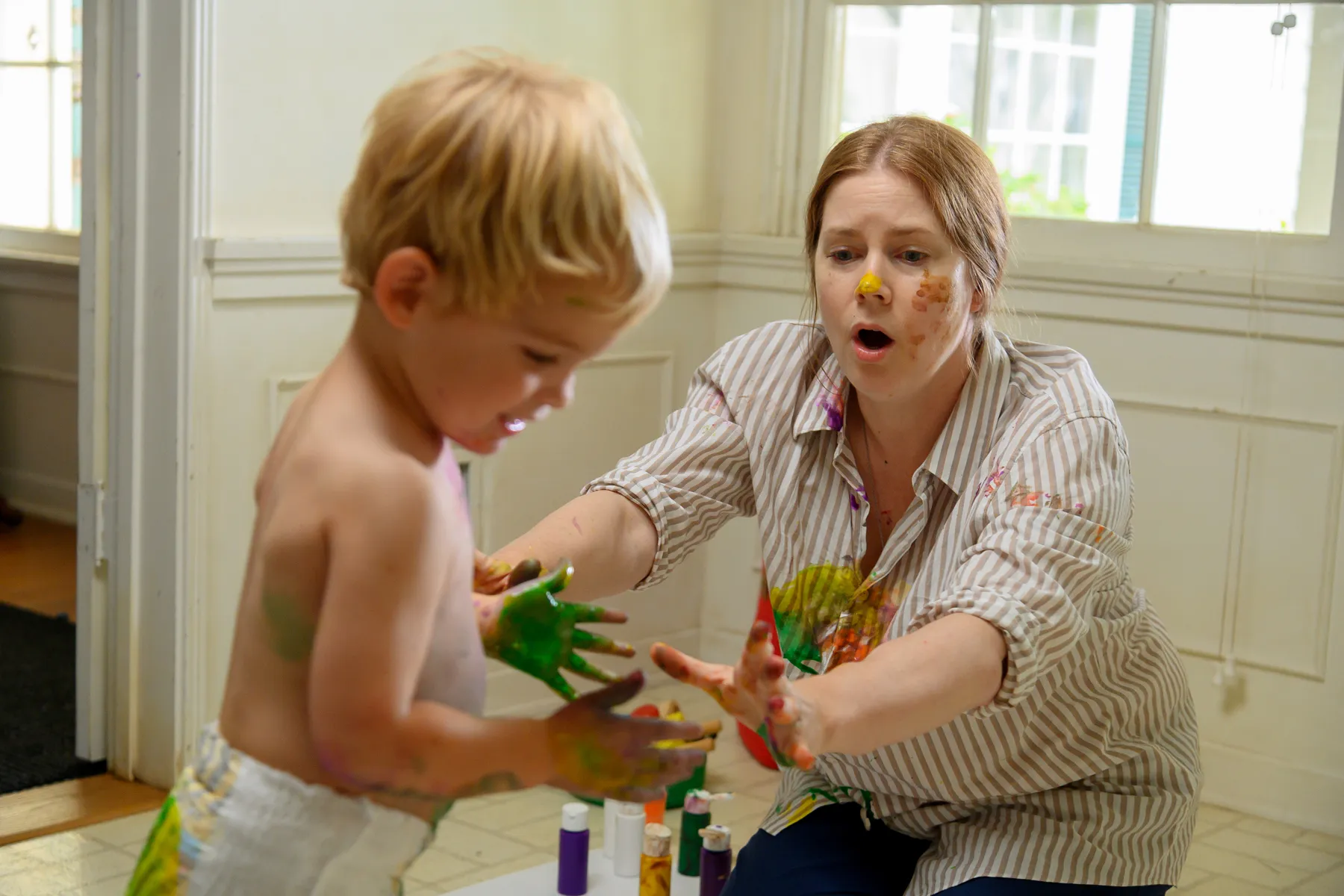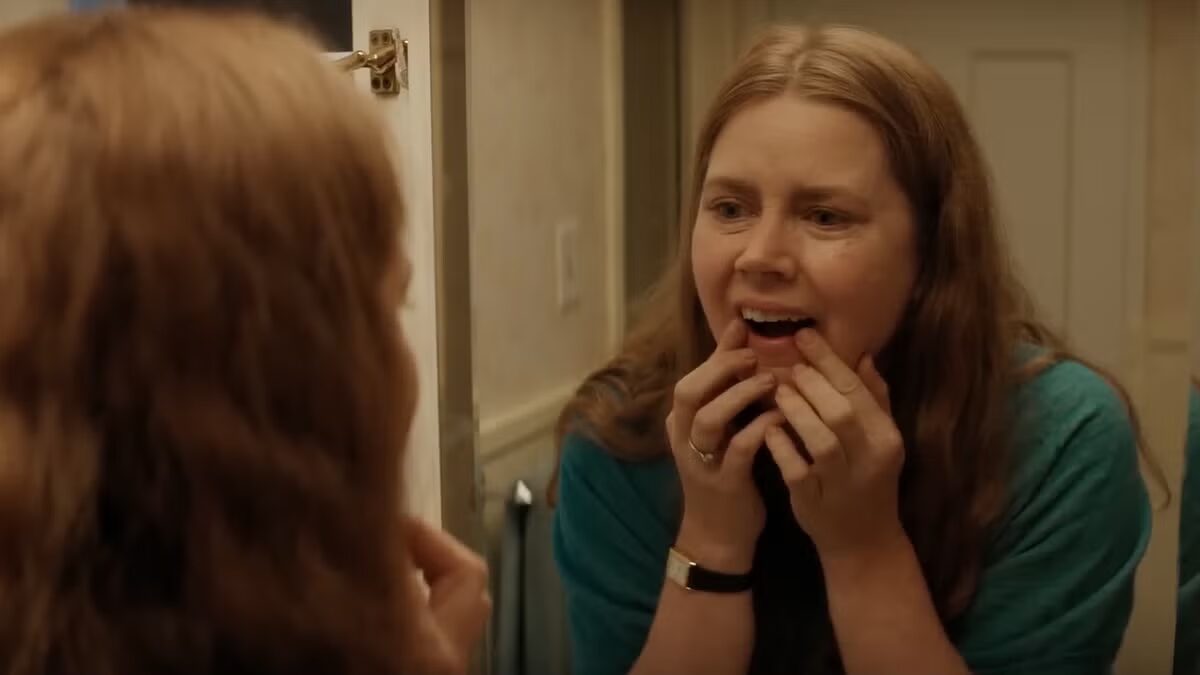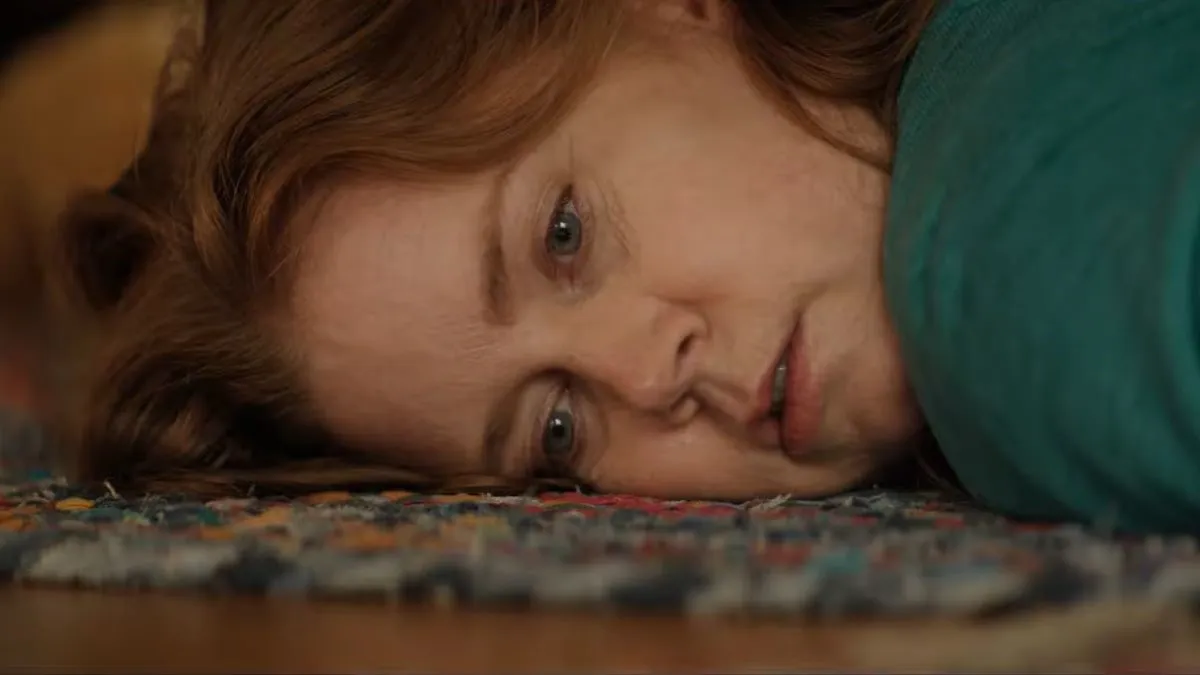Earlier this year, one of my friends asked me if I had heard of a book she was reading called Nightbitch. I was familiar with it because the title is intriguing, and the cover features pieces of raw steak. OK, that looks pretty metal. However, I had no idea about the book’s premise.
My friend explained that the story revolves around a postpartum mother who begins to believe that she is transforming into a dog. This bizarre and humorous concept resonated with us, especially since we were both navigating the challenges of new motherhood, ourselves. The idea of a mother grappling with such an absurd transformation struck us as funny and relatable amid the often-surreal experiences of postpartum life.
Even though I haven’t had a chance to read Nightbitch yet, my friend’s description of its darker undertones piqued my curiosity. The narrative balanced humor with deeper themes, and I wanted to know how these elements would translate in the upcoming movie adaptation.
Directed by Marielle Heller and billed as a “black comedy horror,” the movie follows a character named Mother, played by Amy Adams, a former artist now working as a stay-at-home mom to her 2-year-old son, portrayed by twins Arleigh Patrick Snowden and Emmett James Snowden. The story begins by highlighting motherhood’s monotony and isolation; she prepares the same breakfast every morning, followed by a repetitive daily routine. Mother struggles to balance being a good mom with wanting to express herself, while her husband, portrayed by Scoot McNairy, remains unaware of her internal conflict.
As the story unfolds, Mother grapples with the unsettling belief that she is transforming into a dog. This strange phenomenon creates a rift between her husband, who remains skeptical of her increasingly bizarre claims. The tension between them grows as Mother becomes more consumed by her dog-like behaviors.
Flashbacks are interlaced with the present narrative and reveal Mother’s childhood experiences. These memories depict her as a young girl, observing her mother exhibit similar canine traits. These vivid recollections provide critical insight into the origins of Mother’s current predicament, suggesting a cycle of confusion and transformation, but I believe that is ultimately up to interpretation.
I had to view this film in two separate sittings, as the first half was quite a grueling watch for me. As a stay-at-home mom, I often seek out movies to escape my daily life after putting my toddler to bed for the night. Instead of immersing myself in a different world, I felt like I relived my experiences on screen.
The emotional weight of the narrative hit too close to home, making it challenging to engage and enjoy the film. I wasn’t sure I would finish it because it mentally wore me out. The only redeeming aspect was a touch of body horror during the transformation scenes, which were quite intense.
A couple of scenes with some body horror made me squirm! I was surprised by that. It wasn’t cute by any means; it was pretty disgusting. I loved it! However, various reviews have highlighted a significant shortcoming in the film: the lack of detail surrounding the protagonist’s transformation into a dog. This pivotal element seems to be underexplored in the cinematic adaptation, which could leave viewers longing for more.
This brings me to another important point: the marketing was quite misleading. Although the premise centers around a mother who believes she is transforming into a dog, this storyline is not the film’s primary focus. Instead, the narrative explores the complexities and challenges of motherhood, highlighting the emotional and psychological struggles that many mothers face. Additionally, calling it a “dark comedy horror” doesn’t accurately describe it. I found a few moments funny, but unless you are a mother or caretaker, I doubt others would find it humorous.
And as for the label of “horror”? I don’t think it fits at all.
I digress. I eventually watched the movie’s second half and cried multiple times because of the mother’s inner thoughts and conversations. Some may find them unusual, but I found them profoundly impactful as a mother. For example, she asks her new mom friends, “Do you ever feel like the big secret is that we are gods?” She poses this question because women create life, highlighting our true power! Her relatability is where I started to enjoy this story.
The mother’s transformation into a dog is a powerful allegory for her longing to escape the pressures of daily life and forge connections with other mothers who understand her experiences. Furthermore, the canine analogy resonates with childbirth’s instinctual and primal nature. This thematic exploration adds depth to the film, encouraging viewers to reflect on their own experiences and the complex identities that mothers navigate.
It led to discussions with my fellow stay-at-home moms who have seen Nightbitch, and we all agreed that this movie makes us feel “seen.”
Adapting a novel into a film is a complex and often challenging process. I question whether Nightbitch was meant to be envisioned as a movie. I’m sure this was a dream for author Rachel Yoder, and she likely had a specific vision for how her story should be told. Nonetheless, it’s a reality that not all books seamlessly translate into film adaptations. Due to their intricate details or internal monologues, some narratives may struggle to resonate on screen as they do in written form. I believe this movie struggled to impact audiences due to that factor.
Let me delve into some of the standout aspects of the film, mainly focusing on Amy Adams’ performance. She delivers a stellar portrayal that showcases her exceptional range as an actress. One of the most impressive elements of her performance is how effortlessly she transitions from sweet and nurturing to exhibiting a more feisty and assertive side.
Several moments in the film showcase her quirky side, especially when she humorously imitates a dog in front of strangers. Although this could easily be over-the-top, Adams infuses these scenes with authenticity and charm, ensuring they land well with the audience without feeling corny or forced.
I have always been a fan of Adams, and this role allows her to shine as she fully embodies her character, making her struggles and triumphs feel incredibly real and relatable. The chemistry she shares with her on-screen son is another film highlight. Despite the son being played by twins — likely a choice made to adhere to labor laws regarding child actors — they each deliver commendable performances. The way they interact with Adams conveys a genuine bond, and they manage to avoid the typical pitfalls of child actors, who can often come across as bratty. Instead, they bring an earnestness to their role that complements Adams’ performance beautifully, creating an engaging dynamic that resonates with viewers.
I ultimately rate the movie three out of five stars because I can relate to Mother’s experience so well, and Amy Adams delivers a powerful performance. However, I found the plot to be thin and dull. While I recommend it to my stay-at-home mom friends, most others might want to skip it.



